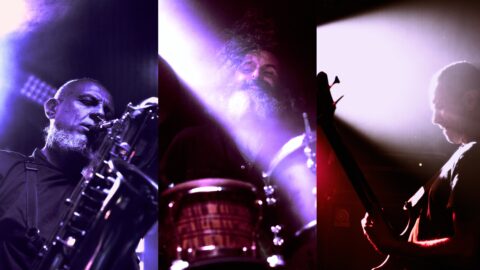Singer Mari Boine was the first to introduce the world to the music of the people of the European North, the Sami, an ethnic group formerly known as the Lapps. Peter Gabriel released her breakthrough album Gula Gula in 1989 on his newly formed Real World label. Mari Boine's songs gave authentic content to then still nebulous concepts such as shamanism or Nordic pagan rituals. The singer put her native genre in a global context and in 2008 was appointed professor of ethnomusicology at the University of Nesna. Her latest album Alva, which she will present in Prague, is an artistic return and the singer's strongest recording since 2006's Idjagieđas.
Joik, the singing of the Nordic Sámi, is not just a vocal discipline. It is a creative expression of a very specific feeling, situation or object, and also a social game. You can joik your uncle, a snowstorm, or the town you are performing in. “Joik is first and foremost a highly personal affair,” explains Mari Boine. “It gives you a similar high that people usually look for in drugs.” For Mari, growing up, joik was a way to find her own identity. Sami people were second-class citizens in Norway at the time. In the north, where Mari grew up as the daughter of a farmer and a fisherman, the psalms were sung. Joik was – like the blues in America at one time – considered an instrument of the devil. A specific phenomenon was a local religious movement, Laestadianism, which absorbed elements of shamanism without the majority population admitting it. “At the end of their gatherings they would chant until people fell into a trance. Just like the Sami rituals. But if I had pointed this out, the Norwegians would have flatly denied it. They wanted to be Christians, and somehow they had adopted elements from elsewhere. I loved it as a child. But I also know that it made other Sami people feel guilty. But more often it symbolized rebellion against the colonizers.” Mari Boine introduced herself to the world audience in 1989 with the album Gula Gula, on which she combined shamanic spirituality with modern instruments. Her co-performer Carlos Quispe from Peru played a significant role. “I discovered him as a street musician in Oslo.” As a member of a marginalised Indian ethnic group, his identity is very close to the Sami singer. Mari Boine’s music touches listeners in places they often didn’t know existed. It goes to the very core, to the primal instincts, and puts the listener in a trance-like state.





















